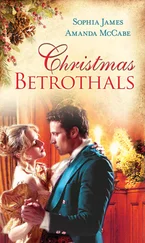“Are they?” I asked.
“I’ll leave it to you to judge.” Julian teased open the pouch’s drawstring and turned it upside down over the table, releasing a colorful cascade of military decorations—ribbons, medals, bars, and a slender golden eagle with widespread wings.
My pulse quickened at the sight of the golden eagle. Aunt Dimity had been engaged to a fighter pilot who’d been killed in the Battle of Britain. Perhaps the medals belonged to someone Dimity had known during the war. Smitty might have come to the cottage on behalf of an aging airman.
“A DSO,” said Julian, separating one medal from the pile. “The Distinguished Service Order, given to commissioned officers of the navy, army, and air force for special distinction in action. The bar means that the airman won the medal twice over.”
My ears pricked up. “How do you know it was given to an airman?”
Instead of answering me directly, Julian proceeded to identify two other medals. “The Distinguished Flying Cross, awarded for gallantry when flying in an engagement against an enemy. The Air Force Cross, given for acts of courage when flying in any context other than combat.”
I lifted the golden eagle from the table. “And this?”
“The Pathfinder badge,” Julian replied. “Pathfinders were the crème de la crème, members of an elite corps culled from the best bomber crews in the Royal Air Force.”
“Bombers,” I echoed thoughtfully, placing the golden eagle on the table. Dimity had never said a word to me about bomber crews, but she’d known so many people during the war that anything was possible.
Julian plucked at his goatee worriedly as he stared down at the medals. “Smitty left all of his possessions at Saint Benedict’s—except for the items you see before you. Would a sane man undertake such a difficult journey with nothing in his pockets but a pouchful of old military decorations?”
I answered his question with a question. “Did Smitty ever mention a woman named Dimity Westwood?”
“The philanthropist?” Julian shook his head. “He said nothing to me about her. She’s dead, isn’t she?”
“Yes,” I said, restraining the urge to add more or less. “I know a lot about her, though. She used to live in my cottage.”
“So Smitty collapsed at Dimity Westwood’s cottage.” Julian shrugged. “Could be pure coincidence.”
“Dimity was engaged to a fighter pilot during the war,” I informed him. “She got to know a lot of airmen. Smitty might have been bringing the medals to her—not knowing she was dead—on behalf of someone she knew back then.”
“But who?” said Julian. “And why the urgency?”
I looked down at the table. “I don’t know.”
“Nor do I.” Julian paused. “But Anne Preston might.” He held out his hand imploringly. “Please, Ms. Shepherd, come with me. It’ll take us two hours to get to Blackthorne Farm and two hours to return. You’ll be home in plenty of time for your evening meal.”
“Why do you need me?” I asked, puzzled by his persistence.
“Because you care about Smitty,” said Julian. “Because Anne Preston may say things to you that she wouldn’t feel comfortable saying to me.” He hesitated, then plunged on. “And because I’m a Roman Catholic priest. We aren’t always welcomed with open arms in this country.”
“But—” I started to say “you don’t even look like a priest,” realized how foolish it would sound, and changed it to “I’ve got two children waiting for me at home.”
The priest cocked his head to one side. “On their own, are they?”
“Don’t be silly,” I said, smiling. “My father-in-law’s taking care of them.”
“And he’ll fall to pieces if you arrive home a few hours later than expected?” Julian prodded.
“No,” I said, “but—”
“Please.” Julian reached across the table and clasped my hands in his. “We’ll be back in Oxford by four o’clock, at the latest. You may have two children at home, but I have a hundred and fifty men to feed.”
I could feel myself weakening. Dimity had ordered me to find Smitty’s family or friends, but her orders meant less to me at that moment than the look of trust I’d seen in those violet eyes. I felt I had to do something to confirm Smitty’s faith in me. Perhaps, I thought, I should go along to Blackthorne Farm, to keep this priest from railroading a defenseless man into an asylum.
I looked down at Julian’s hands and noted, with a faint sense of disquiet, that they were nearly as beautiful as Smitty’s. I gently pulled away from him and began gathering up the medals. “Have you tried telephoning Blackthorne Farm?”
“Yes,” said Julian, “but the lines are down because of the storm.”
I gave an exasperated snort. “If the lines are down, the roads are probably impassable. I drive a Mini, Julian. It doesn’t do snowdrifts. How are we going to get through?”
“Have faith, my child.” Triumph gleamed in Julian’s brown eyes as he tucked the suede pouch into his pocket. “Saint Christopher will provide.”
6
Julian Bright’s khaki-colored Land Rover looked as though it belonged in intensive care, alongside Smitty. Julian claimed that the vehicle’s multiple contusions proved its worth, but I was better reassured by a brand-new set of snow tires and a well-oiled winch mounted on the front bumper.
Julian patted the dashboard proudly as he pulled away from the parking garage. “Got him in Mombasa.”
“Not much snow in Mombasa,” I observed. “And aren’t vehicles generally referred to as ‘she’?”
“Not when they’re christened Saint Christopher.” Julian flipped a lever on the dashboard and a blast of heat erupted from the vents.
“At least we won’t freeze to death when we’re stranded in a snowbank,” I commented.
Julian rolled his eyes heavenward. “O ye of little faith.”
I pulled my cellular phone from my coat pocket and telephoned Willis, Sr. He was, as I’d expected, unfazed by the change of plans. He passed along the news that Bill had arrived safely in Boston, and by the time we finished our conversation, I was fairly certain that my father-in-law was pleased as Punch to have Bill and me out from underfoot and his grandsons all to himself.
The sun was shining brightly, but a brisk wind buffeted the Land Rover as we escaped the clinging tentacles of Oxford. Blackthorne Farm lay somewhere in the vicinity of a village called Great Gransden, about twenty miles west of Cambridge. There was no direct route—there seldom was, in England—but Julian had worked out a series of jigs and jogs that were likely to get us there in two hours, barring the odd snowdrift.
A dazzling white counterpane of snow blanketed the land in all directions, but—luckily for us—an army of snowplows had been at work and the main roads were clear. I donned my sunglasses and sat with Julian’s well-thumbed road atlas open in my lap, waiting for him to ask for directions.
“What were you doing in Mombasa?” I asked.
“I thought I wanted to be a missionary,” Julian replied, “but the water changed my mind. There comes a time when dysentery ceases to amuse.”
I smiled. There was no denying that Julian was good company.
“Come now,” he went on, a teasing note in his voice, “aren’t you going to ask why I became a priest? It’s usually the first thing people want to know.”
“I’m familiar with the concept of vocations,” I said dryly. “I was raised Catholic.”
“You jest,” said Julian, giving me a sidelong glance.
“I was born to an Irish Catholic mother on the west side of Chicago,” I informed him.
The priest released a heartfelt sigh, murmuring, “Thank heavens.”
Читать дальше








